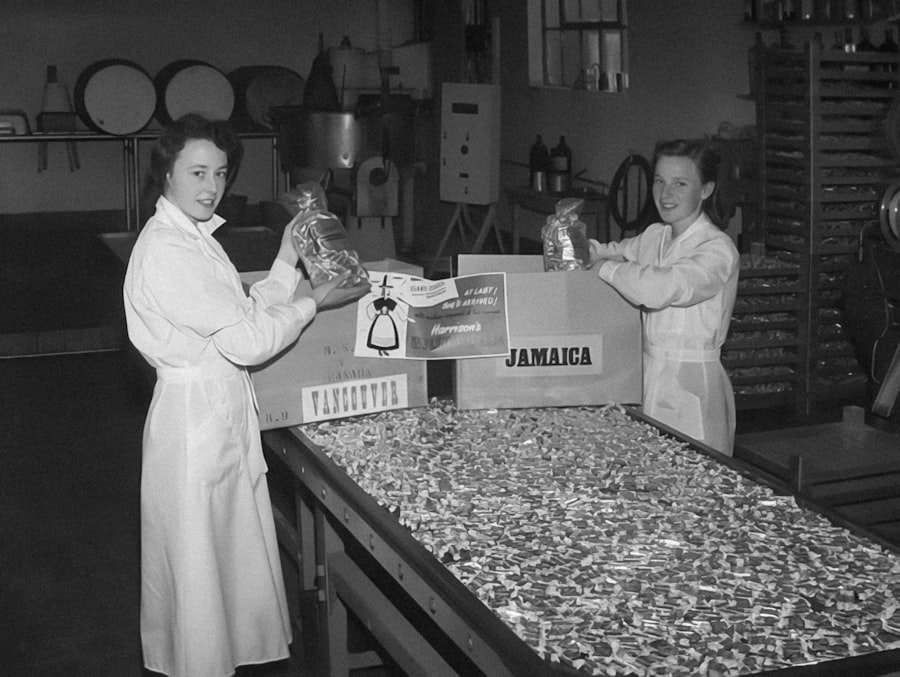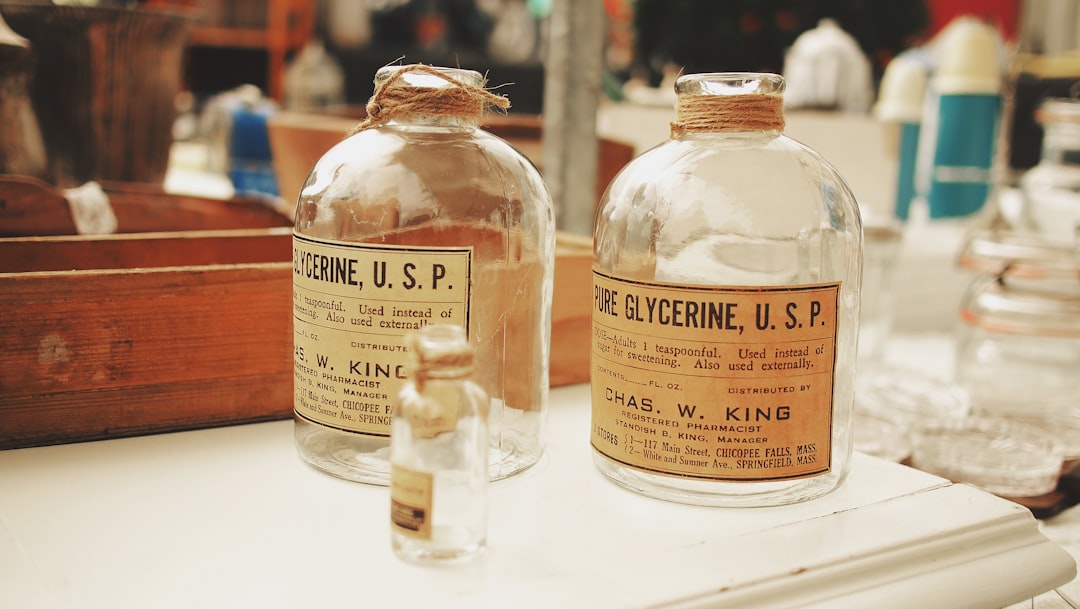World War II was a pivotal moment in history that not only altered the geopolitical landscape but also significantly transformed the pharmaceutical industry. As nations mobilized for war, the demand for medical supplies and effective treatments surged. This urgent need prompted pharmaceutical companies to innovate rapidly, leading to breakthroughs that would lay the groundwork for modern medicine.
You might find it fascinating how the war catalyzed a shift from a relatively stagnant pharmaceutical sector to one characterized by aggressive research and development. The urgency of wartime medicine necessitated collaboration between governments and private companies, fostering an environment where innovation could thrive. The war also highlighted the importance of pharmaceuticals in maintaining troop health and morale.
As soldiers faced new and deadly diseases, the need for effective treatments became paramount. This led to increased funding for research and a focus on developing drugs that could be produced at scale. You can see how this period marked a turning point, as pharmaceutical companies began to recognize their potential role in public health beyond just profit-making.
The lessons learned during this time would resonate for decades, influencing how drugs are developed, tested, and distributed in peacetime.
Key Takeaways
- World War II played a significant role in shaping the modern pharmaceutical industry, leading to advancements in drug development and production.
- The impact of war on medical research and development spurred the emergence of antibiotics, vaccines, and government involvement in drug production and distribution.
- Antibiotics played a crucial role in the war effort, leading to the development of life-saving drugs and revolutionizing the treatment of infectious diseases.
- The influence of military needs on drug manufacturing led to the rise of big pharma and the modern pharmaceutical industry as we know it today.
- Women played a vital role in the pharmaceutical industry during WWII, contributing to the global impact of the war on pharmaceutical innovation.
The Impact of War on Medical Research and Development
The impact of World War II on medical research and development was profound and far-reaching. With the war creating an unprecedented urgency for medical advancements, researchers were pushed to explore new avenues of treatment that had previously been overlooked. You may appreciate how this environment fostered a spirit of collaboration among scientists, physicians, and military officials, all working toward a common goal: saving lives.
The war accelerated the pace of research, leading to innovations that would have taken years, if not decades, under normal circumstances. Moreover, the war prompted significant advancements in various fields of medicine, including surgery, trauma care, and infectious disease management. You might find it interesting that many techniques developed during this time are still in use today.
For instance, the need for effective blood transfusions led to improved methods of blood storage and typing, which have become standard practice in hospitals worldwide. The urgency of wartime conditions forced researchers to think outside the box, leading to breakthroughs that would shape the future of medicine.
Government Involvement in Drug Production and Distribution

During World War II, government involvement in drug production and distribution became more pronounced than ever before. As nations recognized the critical role of pharmaceuticals in supporting their military efforts, they took steps to ensure that drug production was prioritized. You may find it noteworthy that governments began to regulate the pharmaceutical industry more closely, establishing guidelines for drug safety and efficacy that would later become standard practice.
This increased oversight not only ensured that soldiers received effective treatments but also laid the groundwork for future regulatory frameworks. Additionally, governments invested heavily in pharmaceutical research during the war. You might be surprised to learn that many pharmaceutical companies received government contracts to develop specific drugs or treatments deemed essential for the war effort.
This partnership between public and private sectors not only accelerated drug development but also fostered a sense of accountability among pharmaceutical companies. The lessons learned from this collaboration would influence how governments interact with the pharmaceutical industry long after the war ended.
The Emergence of Antibiotics and Their Role in the War Effort
| Antibiotic | Discovery Year | Impact on War Effort |
|---|---|---|
| Penicillin | 1928 | Reduced mortality rates from infections |
| Sulfonamides | 1935 | Treated wound infections |
| Streptomycin | 1943 | Treated tuberculosis in soldiers |
One of the most significant advancements during World War II was the emergence of antibiotics, particularly penicillin. Discovered by Alexander Fleming in 1928, penicillin was not widely used until the war created an urgent need for effective treatments against bacterial infections. You may find it remarkable how quickly penicillin was mass-produced during the war, saving countless lives on the battlefield and beyond.
The ability to treat infections that would have been fatal just a few years earlier revolutionized medical care and set a precedent for future antibiotic development. The role of antibiotics in the war effort cannot be overstated. You might be interested to know that penicillin reduced mortality rates from infected wounds dramatically, allowing soldiers to recover more quickly and return to duty.
This not only improved troop morale but also had strategic implications for military operations. The success of antibiotics during World War II demonstrated their potential to change the course of medicine, leading to an explosion of research into other antimicrobial agents in the years that followed.
The Development of Vaccines and Their Importance During WWII
Vaccines also played a crucial role during World War II, as governments sought to protect their troops from infectious diseases that could compromise military effectiveness. You may find it fascinating that vaccination campaigns were implemented on a massive scale, targeting diseases such as typhus, influenza, and yellow fever. The urgency of wartime conditions necessitated rapid vaccine development and distribution, leading to innovations in vaccine technology that would benefit civilian populations long after the war ended.
The importance of vaccines during WWII extended beyond military applications; they also laid the foundation for future public health initiatives. You might appreciate how the collaboration between scientists and military officials during this time led to advancements in vaccine research that would ultimately save millions of lives worldwide. The lessons learned about vaccine efficacy and safety during this period would inform public health policies for decades to come.
The Influence of Military Needs on Drug Manufacturing

Military needs had a profound influence on drug manufacturing during World War
As armies mobilized across continents, the demand for specific medications surged, prompting pharmaceutical companies to adapt their production processes rapidly. You may find it intriguing how this shift led to innovations in manufacturing techniques that increased efficiency and output. The need for large quantities of drugs meant that companies had to streamline their operations, often resulting in advancements that would benefit civilian markets as well.
Moreover, military needs drove research into new drug formulations and delivery methods. You might be surprised to learn that many drugs developed during this time were specifically designed with battlefield conditions in mind. For instance, medications were formulated to be stable under extreme temperatures or packaged for easy transport.
This focus on practicality not only met immediate military needs but also influenced how drugs were developed in peacetime, emphasizing the importance of accessibility and usability.
The Rise of Big Pharma: How WWII Shaped the Modern Pharmaceutical Industry
World War II played a crucial role in the rise of what we now refer to as “Big Pharma.” As pharmaceutical companies expanded their operations to meet wartime demands, many began to grow into large corporations with significant market power. You may find it interesting how this expansion was fueled by government contracts and increased public investment in medical research. The war created an environment where pharmaceutical companies could thrive, leading to consolidation within the industry that would shape its future.
The post-war period saw these companies leverage their wartime innovations into lucrative civilian markets. You might appreciate how the transition from wartime production to peacetime pharmaceuticals was marked by aggressive marketing strategies and a focus on developing new drugs for chronic conditions. This shift not only solidified the power of these corporations but also changed how healthcare was delivered globally, setting the stage for ongoing debates about access to medications and healthcare equity.
The Role of Women in the Pharmaceutical Industry During WWII
World War II also marked a significant turning point for women in the pharmaceutical industry. As men went off to fight, women stepped into roles that had previously been dominated by their male counterparts. You may find it inspiring how women took on positions as researchers, technicians, and managers within pharmaceutical companies, contributing significantly to wartime efforts.
This shift not only challenged traditional gender roles but also demonstrated women’s capabilities in scientific fields. The contributions of women during this time laid the groundwork for future generations in science and medicine. You might be surprised to learn that many women who entered the workforce during WWII continued their careers in pharmaceuticals after the war ended, paving the way for greater gender diversity within the industry.
Their experiences helped shape policies around workplace equality and set a precedent for women’s involvement in science and technology fields.
The Global Impact of WWII on Pharmaceutical Innovation
The global impact of World War II on pharmaceutical innovation cannot be overstated. As countries around the world faced similar challenges related to health and disease during wartime, they began to share knowledge and collaborate on research efforts. You may find it fascinating how this international cooperation led to significant advancements in drug development that transcended national borders.
The war fostered an environment where scientists from different countries could work together toward common goals. Moreover, the innovations born out of wartime necessity had lasting effects on global health initiatives post-war. You might appreciate how many countries adopted practices established during WWII as they sought to improve healthcare systems and address public health challenges.
The lessons learned about collaboration and innovation during this time continue to influence global health policies today.
Ethical and Moral Dilemmas Faced by the Pharmaceutical Industry During WWII
The pharmaceutical industry faced numerous ethical and moral dilemmas during World War II that continue to resonate today. As companies raced to develop life-saving drugs under wartime pressure, questions arose about safety testing and regulatory oversight. You may find it troubling that some drugs were rushed into production without comprehensive testing protocols, raising concerns about patient safety and informed consent.
Additionally, wartime conditions often blurred ethical lines regarding drug distribution and access. You might be interested to learn how some countries prioritized military personnel over civilians when it came to accessing new treatments, leading to debates about equity in healthcare access that persist today. These dilemmas forced both pharmaceutical companies and governments to grapple with their responsibilities toward patients—a conversation that remains relevant as we navigate modern healthcare challenges.
The Legacy of WWII on the Pharmaceutical Industry and Its Continued Influence on Modern Medicine
The legacy of World War II on the pharmaceutical industry is profound and enduring. The innovations born out of necessity during this tumultuous period laid the foundation for modern medicine as we know it today. You may find it remarkable how many practices established during this time continue to shape drug development processes, regulatory frameworks, and public health initiatives worldwide.
As you reflect on this legacy, consider how it has influenced contemporary discussions around healthcare access, ethical practices in drug development, and the role of government in public health. The lessons learned from World War II serve as a reminder of both the potential for innovation in times of crisis and the ethical responsibilities that come with it—an ongoing dialogue that will undoubtedly shape the future of medicine for generations to come.
The pharmaceutical industry as we know it today has its roots deeply embedded in the events surrounding World War II. During this period, the urgent need for mass production of medications, particularly antibiotics like penicillin, catalyzed significant advancements in pharmaceutical manufacturing and research. An interesting article that delves into the origins and evolution of the pharmaceutical industry during and after WWII can be found on HeyDidYouKnowThis. For more insights, you can read the full article by visiting this link. This piece provides a comprehensive overview of how wartime necessities spurred innovation and laid the groundwork for the modern pharmaceutical landscape.
FAQs
What is the pharmaceutical industry?
The pharmaceutical industry is the sector of the economy that is dedicated to the research, development, production, and marketing of drugs and medications.
What are the origins of the pharmaceutical industry?
The origins of the pharmaceutical industry can be traced back to the 19th century, with the development of synthetic drugs and the establishment of pharmaceutical companies. However, the industry saw significant growth and expansion during and after World War II.
How did World War II impact the pharmaceutical industry?
World War II had a significant impact on the pharmaceutical industry, as the demand for medications and medical supplies increased due to the war efforts. This led to the expansion of pharmaceutical companies and the development of new drugs and treatments.
What were some key developments in the pharmaceutical industry during World War II?
During World War II, the pharmaceutical industry saw advancements in the production of antibiotics, such as penicillin, as well as the development of new drugs to treat injuries and diseases commonly associated with wartime conditions.
How did the pharmaceutical industry evolve after World War II?
After World War II, the pharmaceutical industry continued to grow and innovate, leading to the development of new drugs and treatments for a wide range of medical conditions. This period also saw the establishment of regulatory agencies to oversee the safety and efficacy of pharmaceutical products.
